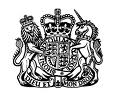What's the most effective way of understanding a bill currently before Parliament? There are a number of organisations which, for a fee, will offer to summarise/explain a bill to you - but can you do it itself?
The Parliamentary website brings together the key tools to use. Lets say you want to understand the Fixed- Term Parliaments Bill.
First go the the current bills webpage - http://services.parliament.uk/bills/ (a page worth bookmarking). Find the Bill - our example would take you here
On this page you can see where the bill is in the legislative process - highlighted visually, in black - and there is also "Last Event" and "Next Event". The Link - "All previous stages of the Bill " allows you to go directly to the Hansard for the stage of the Bill. Reading the Opening speech in the 2nd Reading allows to you see the Minister's (or the sponsor of a Private Member's Bill explanation of the need; the objectives and the structure of the Bill).
The Bill page also has links to the Current Version of the Bill (It is important that you read the up to date version - clauses can be added or deleted - and this means the numbering can change). and the Explanatory Notes. It is useful to read the Introduction: Background and Summary - then read the commentary on the clauses in conjunction with the Bill itself. The Explanatory Notes are helpful - but are merely the civil servants explanation of what they see the bill meaning - it is NOT an authoratative source. Lists of amendments can be found under the link to "All Bill Documents"
The House of Commons Library often supplies material to assist with the understanding of the Bill. This too can be found under the link to "All Bill Documents" - I sugeest this is a 'must read'. In our example the Research Paper is here. There may be updates from the Library - sometimes as further Research Papers and sometimes, more briefly, as Standard Notes.
These tools will give a good background understanding of the Bill. Note that a "clause" in a Bill becomes a "Section" in the Act of Parliament.
skip to main |
skip to sidebar

Washminster


For everyone interested in History and also the work of Britain's Parliament; the US Congress; the European Parliament and the French Parlement. Also deals with China and the European Union. Discusses Practice, Procedure, History and current issues.
Washminster

Washminster
About Me

- J David Morgan
- Milton Keynes, United Kingdom
- Retired. An experienced lecturer, tutor and researcher with practical experience of working in the UK and European Parliaments. I have a keen academic and practical interest in the workings of both the UK Parliament and the US Congress. Over the years I have broadcast on both British and US Politics for BBC local radio stations and presented Platform:MK, Heritage:MK & Heritage Matters on Milton Keynes based Community Radio Stations.
Political Science Groups
Recommend Washminster
Search This Blog
J David Morgan

Watch
US Congress
UK Parliament
FR Parlement
European Parliament
China (Government)
London Favourites
Blog Archive
-
▼
2010
(393)
-
▼
December
(60)
- Happy New Year
- A useful Tool
- 94th Congress
- Welcome Back
- Happy Christmas
- Chet Baker
- New Rules for the House of Representatives
- Capitol Ducks
- Working Peers
- The nuts and bolts of making law
- Update on Filibusters
- 2010 Census and the 2012 Elections
- A New Peer
- Airports in Britain
- The week ahead
- Flying into Washington DC
- The Filibuster in the Senate
- Christmas in London
- The path to war...
- Fixed Terms Parliaments Bill
- The 1970 Parliament (45th Parliament of the UK)
- Cabinet Manual
- Christmas in Washington
- Parliamentary Accountability
- Diagnosing the problems
- Census and Apportionment Announcement
- 93rd Congress
- RollCall - Briefing on Today in Congress
- Key "Constitutional" Document to be published?
- Rule VIII House of Representatives
- Westminster - the week ahead
- House of Representatives - the week ahead
- Growing Concerns
- Rule VII House of Representatives
- Farewell Speeches in the Senate
- How to Prep yourself about a current Bill (Westmin...
- Rule VI House of Representatives
- Books on the American Civil War
- Truly Mr SPEAKER
- Commemorating Battles
- R v Chaytor
- JFK's Secret Service Agents
- Think Tanks - get one thinking!
- Opposition Day
- The Week Ahead
- Ike Skelton
- Changes to Republican Conference Rules
- IPSA
- Today in the Senate
- John Spratt
- Keeping up with Britain's top Court
- The money to run Congress
- Censure
- Wright Patman
- Chris Dodd says farewell to Congress
- Key Points from R v Chaytor
- Structure of the Judgment in R v Chaytor
- Parliamentary Privilege - the unsuccessful claims
- Parliamentary Privilege
- Nixon Impeachment Hearings
-
▼
December
(60)
